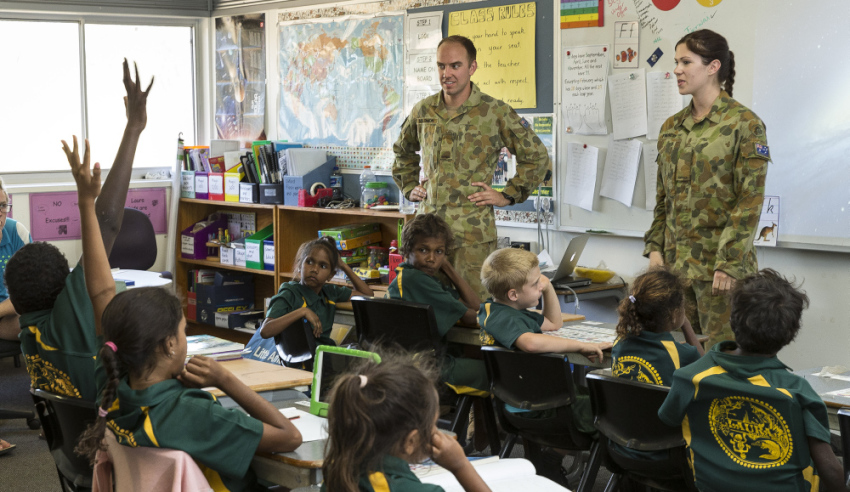Australian primes must invest in education and training as the industry grows over the next decade, a defence prime chief executive has said.
To continue reading the rest of this article, please log in.
Create free account to get unlimited news articles and more!
Babcock Australia & New Zealand chief executive David Ruff told Defence Connect while Australia's defence industry is currently well equipped with talent, the industry must assist in preparing the education sector for the defence industry of the future.
"I think the first point to make is that I think Australia has got a huge wealth of talent," said Ruff. "If you look at the education system in Australia, and I'm going right up to tertiary now and Adelaide is as good an example of any as high quality secondary and tertiary education. The quality of the people that are coming out of those educational establishments is enormous. There's untapped potential there.
"The bedrock of any industry is the people, and skilled people. Those skills range from the very high level, white collar down to the skilled vocational technicians and so on and so forth. The defence industry like every other, [it] needs that broad range. I think that broad range is available in Australia today.
Ruff explained that while Babcock's Australian presence has never experienced trouble with recruitment, Australia will need to prepare to upscale as the 2016 Defence White Paper projects take shape.
"From a Babcock point of view, we have very little problem recruiting the right quality of people in terms of skills and in terms of experience. Now, that's today. As the defence industry grows and we launch on a national shipbuilding enterprise, submarines, whatever it is, there's, obviously, going to need to be an upscaling," explained Ruff.
"There's no doubt about that. You're already seeing the big defence majors, Babcock included, investing in people, in institutions, in training and technology. All of that is going on, it's all part of the defence industrial policy statement, which the government has laid out there. I, along with the rest of industry, see that as a bit of a challenge and something for us to respond to. The framework's been laid, our response is to invest in it and commit to it, whether that is people, whether it's supply chain."
Ruff said Babcock's experience with the Collins Class sustainment program has helped the prime prepare for this challenge, adding that opportunities abound for Australian workers ahead of Defence's upcoming acquisition projects.
"If you look at, just in our submarine business alone, where we very proudly support ASC, a relatively small part of the overall sustainment of Collins, that enterprise, the Babcock part of that enterprise, is something like 50 local suppliers, 50 international suppliers and a total of 450 that contribute to the overall outcome that we put into that program," said Ruff.
"That's just a tiny, tiny piece of Collins, but those numbers alone, I think, indicate the benefit you can get when you invest in the national defence industry and the downstream effect you can have in terms of people and growing the national skills base, and in terms of investing in the national supply chain."
To hear more from David Ruff, tune in to our exclusive podcast here.

 Login
Login







